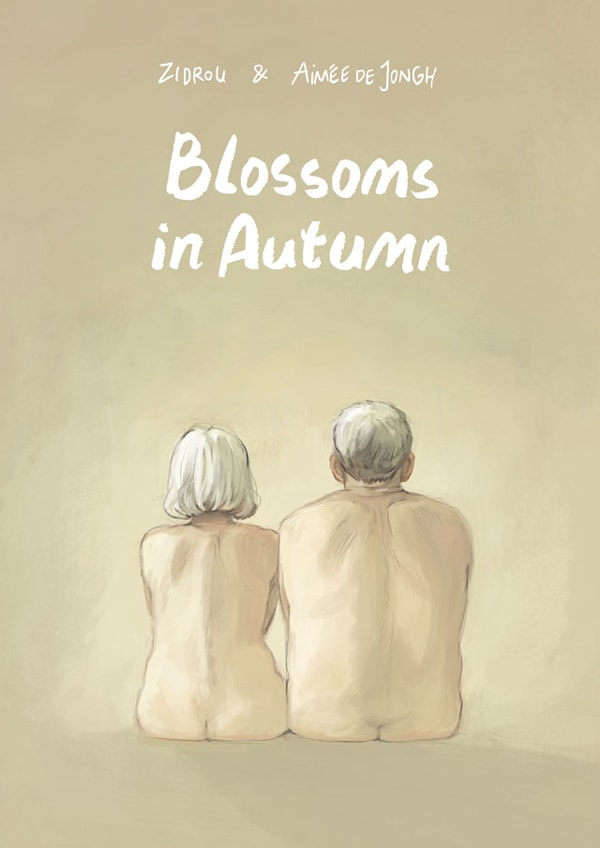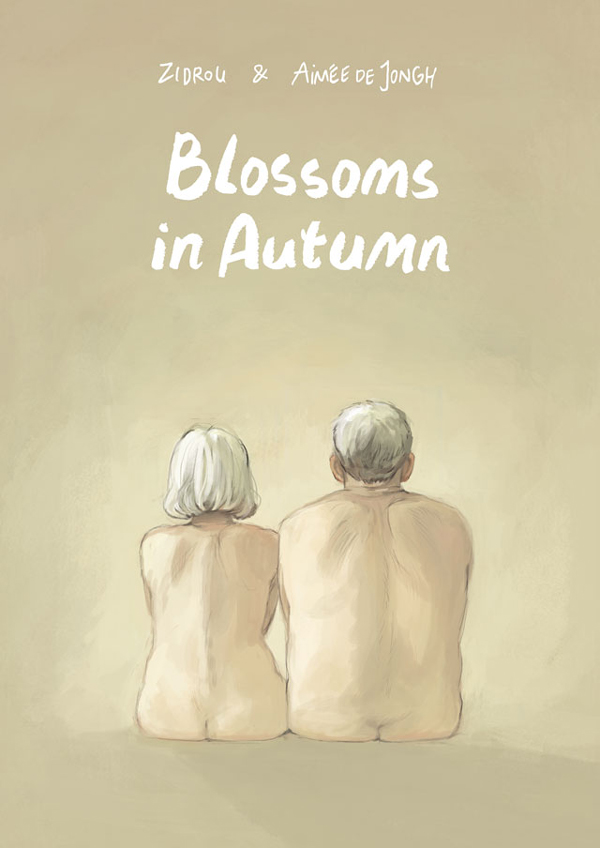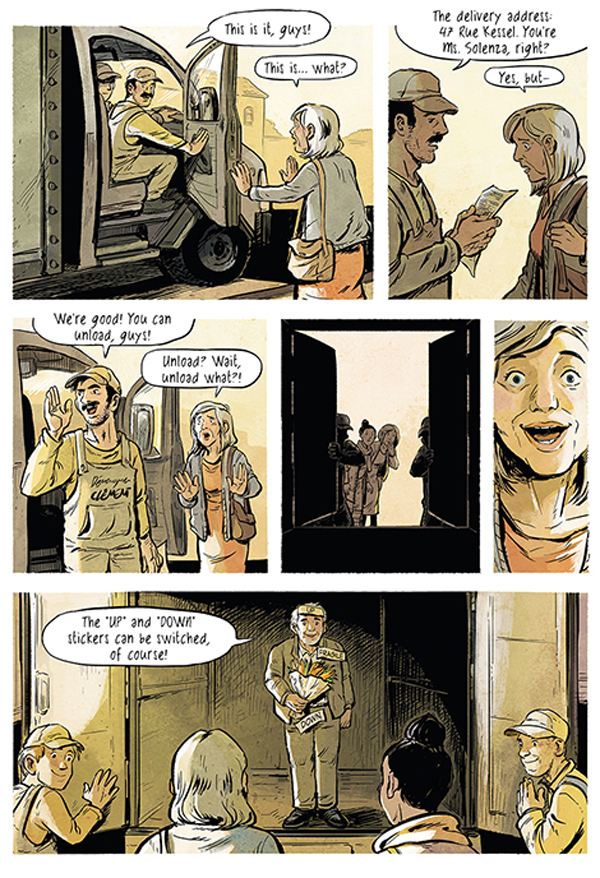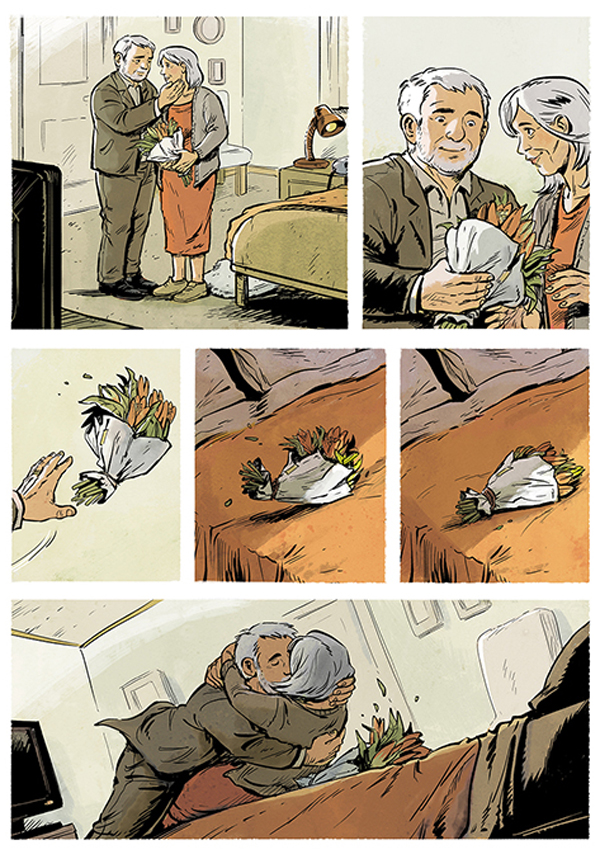Blossom in Autumn
Written by Zidrou
Illustrated by Aimee de Jongh
Self Made Hero
Sometimes it feels like it’s only been in recent history that we’ve realized that people over 60 have actual lives that they live, filled with the same emotions as people in their 20s. Not the same lives as people in their 20s, nor the same lives they lived when they were in the 20s, but lives that involve more than sitting around, watching TV, taking pills, and napping.
My gut is that this partly due to the boomers being the first generation who can afford to have amazing lives at that age, and who actually have the time to have these amazing lives, unlike all the poor generations before. Which seems like it would bode well for the next generations, but I don’t think that’s a safe uniform assumption. And anyone who is paying attention knows that millennials are probably totally screwed, so they should really live to the fullest right now.
Blossoms In Autumn is a sweet romance tale that illustrates my point.
Ulysses, 59, was forced to retire, a widower for two decades who spent his life as a mover and now wanders through his impending old age bored. Mediterranea, 62, is a former model who faces her mother’s death and then the reality of her body reflecting the years she has lived. As happens in these things, they will meet at the right moment and find they soften each other’s rough edges, give hope to each other where before they were just looking ahead to the end, and create an energy that makes them feel far less old than they currently are.
This is a fairy tale in some ways and Zidrou brings that point home with references aplenty to Snow White and The Odyssey. The idea here is that your life can be your eternal slumber or your meandering journey, but your old age can be both the magical moment you awaken to find a new shining reality and the goal of your endless quest, and these two circumstances can merge to create something enchanting.
Corny, I know. But it’s sweet, and pulled off with pithy characterizations by Zidrou. The real star here is de Jongh, whose rendering of Ulysses and Mediterranea doesn’t mask the characteristics of their ages, but rather incorporates them as part of what makes the two attractive to each other, and does an especially wonder job with the tender moments between them, especially in contrast to scenes between Ulysses and a prostitute he regularly visits that have more the tone of therapy than sharing.
As with any fairy tale, the ending reflects the magical circumstances that came before it and this is the one part of the book that may divide readers. Without revealing the outcome of the romance, I will say it is something that depends on the suspension of disbelief but does speak to the story’s underlying concept of biology only allowing the decline of aging because the mind has accepted that action as inevitable. But falling in love and making such a connection is at that point a miracle of some sort, I suppose, since we very often relegate such things to the province of the young, so the ending deserves some sort of actual miracle to mirror the circumstance of their union, as well as illustrate the real meaning of the book’s title — it’s not just about being alive in your autumn years, it’s about being renewed.











Comments are closed.